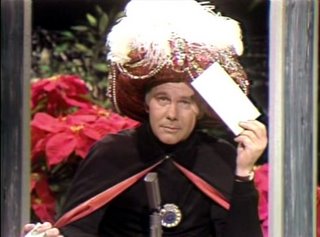I was over reading Andrew Kessler's "Southpawspot" blog - http://southpawspot.blogspot.com, and he's got a post up regarding a Keith Olberman editorial that was televised the other night in response to SecDef Rumsfeld's American Legion speech. In his editorial, Olberman tries to compare this government to the government of Neville Chamberlain in Great Britain in the years preceding World War II, and, by extension, make the War on Terror and the War in Iraq into some sort of bizarro "appeasement" situation - and, by further extension, turn the anti-war activists into bizarro Winston Churchills.
Anyhow, Kessler reposted the editorial, and I responded to it there. But I thought it was worthy of its own post, right here on the Liberty Blog. What's interesting to me is that it was over a year ago that Kessler and I had our first online altercation over a year ago, and it centered on my use of a Churchill quote here on the Liberty Blog about solidarity in the face of terror (actually, more directly, it had to do with my linking that post to the online bulletin board for the public school that Kessler and I were classmates in).
But on to the issue of Olberman:
To me, what's amazing is that Olberman could use that analogy and come to a completely opposite conclusion than Churchill's.
I rewatched "The Gathering Storm" last weekend while I was flying home from Texas with the fam. For the uninitiated, that was HBO's amazing Winston Churchill biopic - taking place in the years of Churchill's pre-war decline.
The most basic that Olberman gets wrong is proclaiming that it was Chamberlain who tried marginalizing Churchill by isolating him and keeping a monopoly on the facts. It wasn't - it was Stanley Baldwin, Chamberlain's predecessor.
This isn't just nitpicking, as Baldwin's actions are almost more damning than Chamberlain's appeasement, and far more apropos to the situation we find ourselves in today. Baldwin was a pacifist, raised to the highest elected office in England because of his deep committment to peace and his antiwar views - views shared by a great many in England at the time.
In fact, if there is any lesson to be learned from the Baldwin versus Churchill incident, it's that it is profoundly dangerous for a government (and a people) to be so enamored of pacifism that they ignore very clear and very real threats to their existence.
Churchill's very point - his driving passion that brought him out of decline, that allowed him to confront Baldwin directly, that convinced others to risk everything to provide him with the facts that ultimately won the argument, that put him back in as Lord of the Admiralty and eventually as Prime Minister, was that there are some people who simply cannot be negotiated with. That the only response to such people is fierce determination and the force of arms.
It is, in fact, a cautionary tale that ought to be weighing heavily in the minds of the people this election season. Does America have real enemies? Are those enemies moving against us? What will happen to America if we do nothing? Worse, what will happen is we move backwards or retreat? Can these enemies be negotiated with, and for what? At what cost, ultimately, to our nation? What has history taught us about the honor and trustworthiness of our adversaries? What has history taught us about what our adversaries do after negotiations are completed?
Yes, America faces a choice - a choice other nations have faced in the past. We can appease, or worse, retreat from the battlefield. Or we can stay resolved - resolved that freedom is better than slavery, that prosperity is better than poverty, and that hope is better than despair.
There is no doubt in the end - dissent and disagreement with government _is_ the life's blood of human freedom. And one can criticize the prosecution of the war and still be supportive of that war's ultimate goals. But Olberman was wrong to use Churchill's courageous stand to support his arguments, when, in fact, it teaches us just how wrong Olberman is.
----
And, allow me to add, how wrong appeasement is. There are no half measures to be had here. We must be victorious - for, as Churchill said, "
You ask, what is our aim? I can answer in one word. It is victory. Victory at all costs - Victory in spite of all terrors - Victory, however long and hard the road may be, for without victory there is no survival." (Blood, Sweat and Tears Speech, May 13, 1940)
- Andrew Langer




